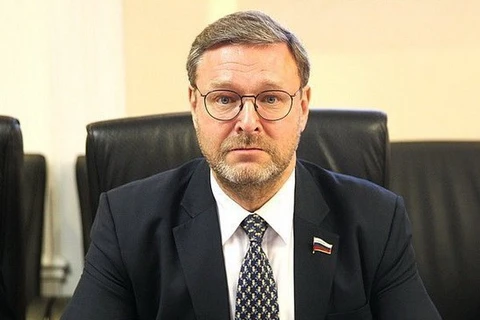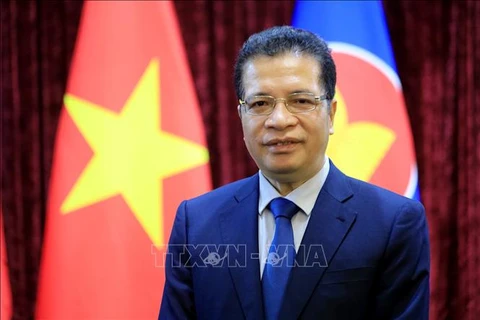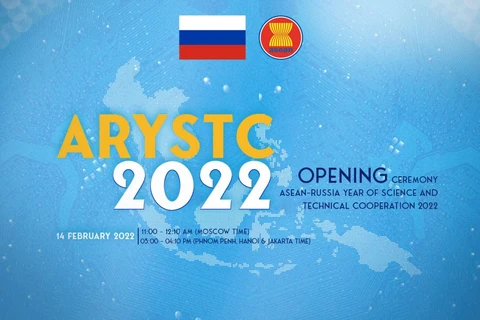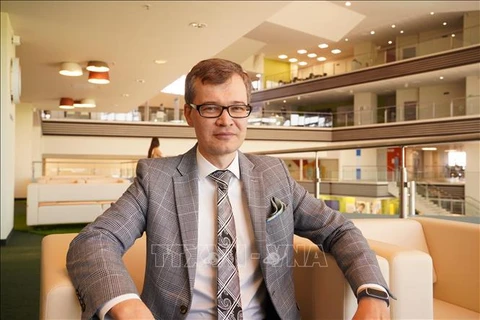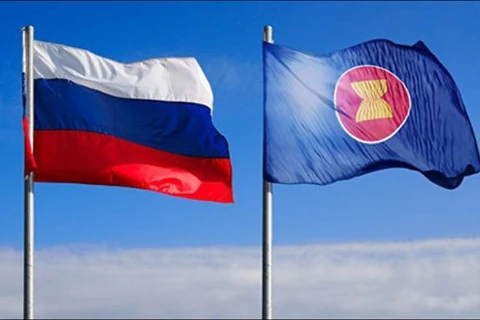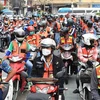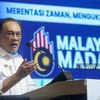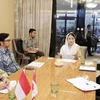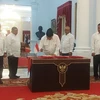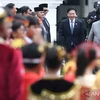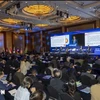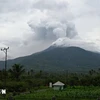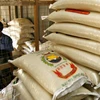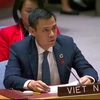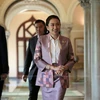Moscow (VNA) - An international conference themed “Russia and ASEAN in the Asia-Pacific region: Dynamics of cooperation, regional processes and global context” took place at the Moscow State Institute of International Relations (MGIMO) on October 13.
Hosted by held the ASEAN Centre under MGIMO, the event includes 11 symposiums and one roundtable discussion, focusing on ASEAN's policies and approaches to international issues; difficulties in the Russia-ASEAN partnership in the context of challenges from the global political situation; and solutions and new dynamics to promote the bilateral cooperation between Russia and ASEAN in general, and each member countries of the bloc in particular.
Representative's from ASEAN member nations spoke highly of the ASEAN-Russia strategic partnership, affirming ASEAN's willingness to cooperate with all countries in the world, including Russia. They expressed the hope that the complicated international political context at present will not affect the bilateral cooperation.
For their part, Russian delegates gave positive assessments of ASEAN's potential in Asia-Pacific. They said the Russian side advocates promoting Russia-ASEAN dialogues, and the operation of Russia’ intergovernmental committees with ASEAN member states, thus finding ways to lift the bilateral cooperation to higher levels in the fields of oil and gas, infrastructure development and logistics.
In her speech, Ekaterina Koldunova, Director of the ASEAN Centre, hoped that experience and knowledge shared at the event will help further promote the Russia-ASEAN strategic partnership in the coming time.
Meanwhile, Yevgeny Vlasov - Vice President for International Relations at Far Eastern Federal University of Russia proposed the possibility of cooperation in artificial intelligence technology between Russia and ASEAN.
He said that this may be an important cooperation direction between Russia and ASEAN, including Vietnam./.
Hosted by held the ASEAN Centre under MGIMO, the event includes 11 symposiums and one roundtable discussion, focusing on ASEAN's policies and approaches to international issues; difficulties in the Russia-ASEAN partnership in the context of challenges from the global political situation; and solutions and new dynamics to promote the bilateral cooperation between Russia and ASEAN in general, and each member countries of the bloc in particular.
Representative's from ASEAN member nations spoke highly of the ASEAN-Russia strategic partnership, affirming ASEAN's willingness to cooperate with all countries in the world, including Russia. They expressed the hope that the complicated international political context at present will not affect the bilateral cooperation.
For their part, Russian delegates gave positive assessments of ASEAN's potential in Asia-Pacific. They said the Russian side advocates promoting Russia-ASEAN dialogues, and the operation of Russia’ intergovernmental committees with ASEAN member states, thus finding ways to lift the bilateral cooperation to higher levels in the fields of oil and gas, infrastructure development and logistics.
In her speech, Ekaterina Koldunova, Director of the ASEAN Centre, hoped that experience and knowledge shared at the event will help further promote the Russia-ASEAN strategic partnership in the coming time.
Meanwhile, Yevgeny Vlasov - Vice President for International Relations at Far Eastern Federal University of Russia proposed the possibility of cooperation in artificial intelligence technology between Russia and ASEAN.
He said that this may be an important cooperation direction between Russia and ASEAN, including Vietnam./.
VNA

